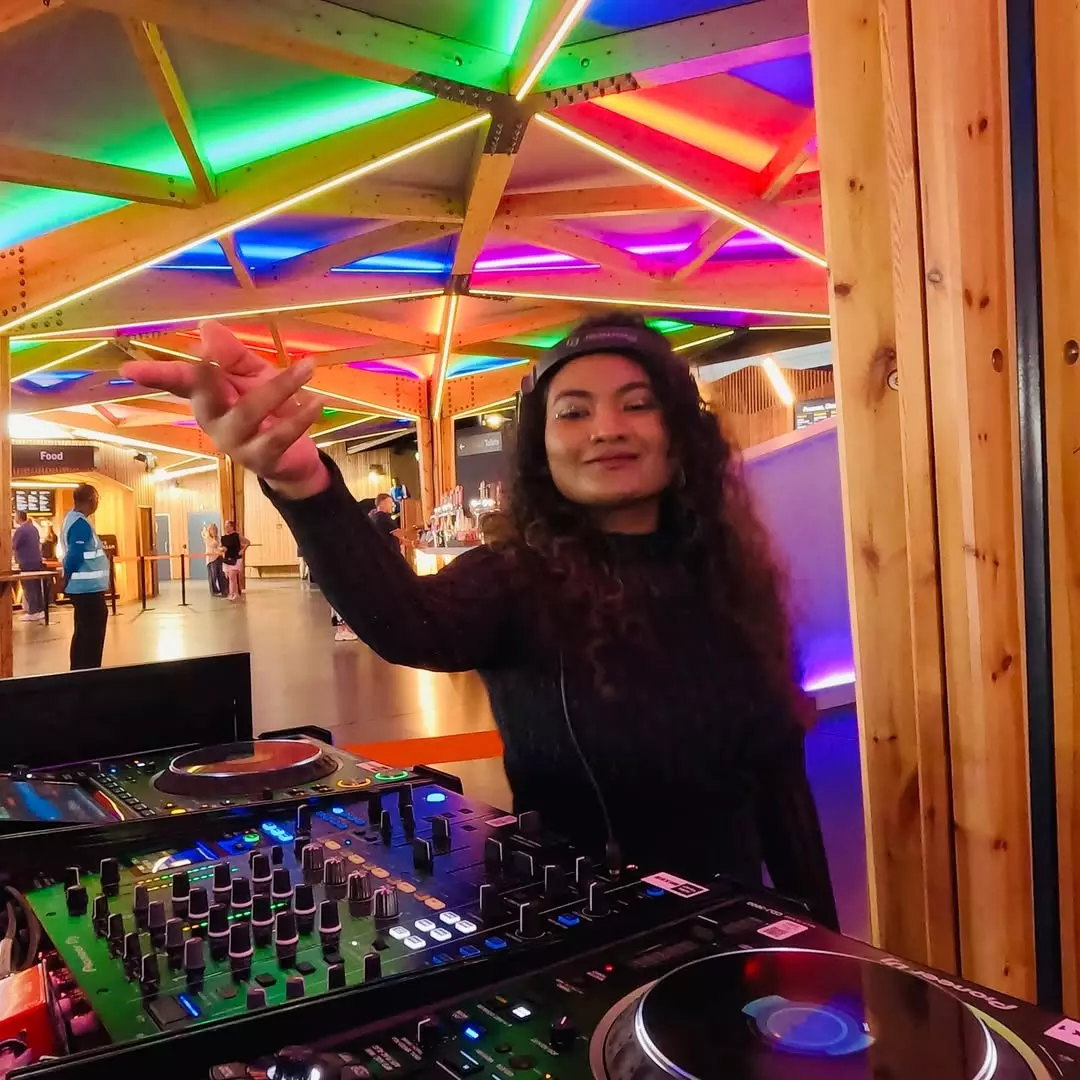Desi Beats Go Global With DJCurl
Breaking beats and barriers: DJCurl’s musical journey

She started out playing private parties because she was too young to enter clubs. Now, Laya Masetty, better known as DJCurl, is playing Holi events in London, collaborating with rappers and remixing Telugu folk chants into multi-layered bass drops. Originally from Hyderabad, the 26-year-old producer has been rethinking what Indian rap sounds like on stage using not just beats, but also textures, atmospheres and customised live performance tracks rooted in her native idioms.
Her sets have turned heads at events in both India and the UK. One of the largest shows was at Hitex Open Arena in Hyderabad on New Year’s Eve 2025, where she produced the live backing track for a major Indian rapper. Masetty fused tabla triplets with modular synths and sonic sweeps to create a mix that one critic described as “a masterclass in cultural remixing.” This was no generic background music and it was tailored to the cadence of the lyrics and the vibe of the moment.
“I started learning this when I was 12, just as a hobby,” said Masetty. “I used to do shows, but only private parties, because I wasn’t allowed into clubs. I kept performing while finishing school and later took a diploma in sound engineering and music production after my degree.”
Masetty moved to the UK in 2022 and since then, her weekends have filled up with events across the British-Indian diaspora circuit. Her work includes collaborations with rappers across three major events, each of which had different musical demands. The beats were designed to be live, responsive and infused with what she describes as sculpted sound rather than standard production.
During the Holi event at Luxe London in 2024, she crafted an entire score using psytrance riffs, acid house elements and broken-up Telugu folk chants. Audience videos went viral. One clip described the drop as “a psychedelic Holi aarti,” where each beat seemed to arrive in slow motion.
Though she’s worked with several performers, Masetty was clear that her role often stayed invisible. “People only see the rapper on stage, but I had to build the whole track behind the scenes using my own sense of what would work emotionally, lyrically, rhythmically,” she said. In some performances, she paired rap verses with stuttered vocal leads and Sarangi-inspired loops. In others, she layered bhajan-style harmonies borrowed from Raga Yaman over dense electronic drops.
While the UK has offered her a space to grow, she says it’s the sounds of home that power her style. “I have always been drawn to Indian classical beats. It’s what I grew up listening to, so I naturally use those instruments when I’m building live tracks. Especially when someone gives me a rap verse, I first try to understand the mood and then make the drops around it.”
She admits the experience of being a woman in the Indian DJ circuit was discouraging. Promoters told her she needed to become fairer or more “beautiful” to book shows. That changed when she moved to the UK, where she says it gave her more opportunities. “So far I have only been asked what I can do, so, the UK has been supportive.”
Over the past two years, her performance credits have grown, as has her control over the stage. Across events in Hyderabad, Bengaluru and London, she has moved from someone who builds the set to someone who defines the mood. As one music critic put it in a review, she isn’t just producing backing tracks, she’s sculpting emotion into sound.

